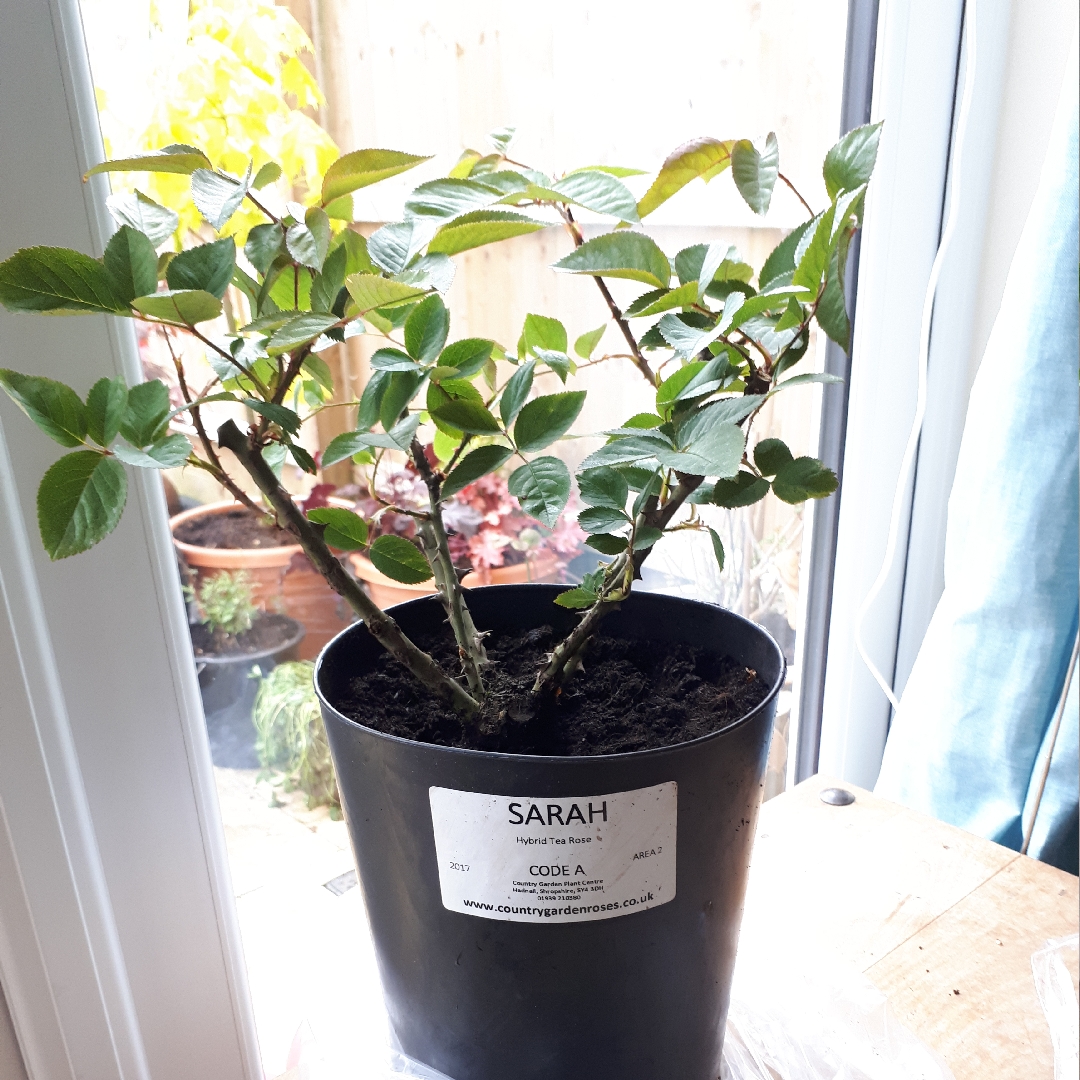
Rosa 'Sarah'
Hybrid Tea Rose 'Sarah'
Original:Large pale pink highly scented blooms flowering throughout the summer months. This rose was registered in 1987 New:Hybrid Tea roses are the successors to the Hybrid Perpetuals. With their freely produced flowers and long flowering season from mid-summer, they are possibly the best loved roses, equal in popularity with Floribundas and Modern Shrub Roses. They are excellent as cut flowers. They thrive in full sun or partial shade in well drained fertile soil. Most are prone to pests and disease and must be protected from these. They are hardy deciduous shrubs with strong prickly stems. The flowers are mostly double although some single forms exist and some are richly scented. 'Sarah' is a fragrant rose in shades of soft pink.
Contributed by @Lowlands.Away
-
Full sun
-
Occasional watering
-
Full Frost Hardy: 5F (-15°C)
-
Rich and free draining
Common name
Hybrid Tea Rose 'Sarah'
Latin name
Rosa 'Sarah'
type
Deciduous Perennial
family
Rosaceae
ph
5.0 - 8.0 Acid - Neutral
Plant & bloom calendar
-
Best time to plant
full grown dimensions
 0.50 M
1.30 M
0.50 M
1.30 M
Rosa 'Sarah'
Original:Large pale pink highly scented blooms flowering throughout the summer months. This rose was registered in 1987 New:Hybrid Tea roses are the successors to the Hybrid Perpetuals. With their freely produced flowers and long flowering season from mid-summer, they are possibly the best loved roses, equal in popularity with Floribundas and Modern Shrub Roses. They are excellent as cut flowers. They thrive in full sun or partial shade in well drained fertile soil. Most are prone to pests and disease and must be protected from these. They are hardy deciduous shrubs with strong prickly stems. The flowers are mostly double although some single forms exist and some are richly scented. 'Sarah' is a fragrant rose in shades of soft pink.
Planting
From Late Autumn TO Late Spring
Prepare the planting site by digging over the bed and incorporate liberal quantities of well rotted manure or compost; lighten heavy clay soil with half rotted straw. Dress the top soil with plenty of peat mixed with hop manure and chopped up turf. Fresh animal manure is harmful to the roots and should only be used in the bottom spit. Where possible, prepare the planting site a few weeks in advance. Do this in late summer for planting in autumn. Plant at any time between late autumn and late spring. Prepare a planting mixture of bone meal and moist peat. Spread out the roots in the planting hole and add the planting mixture until the roots are covered. Add soil and firm in the plant by treading.








